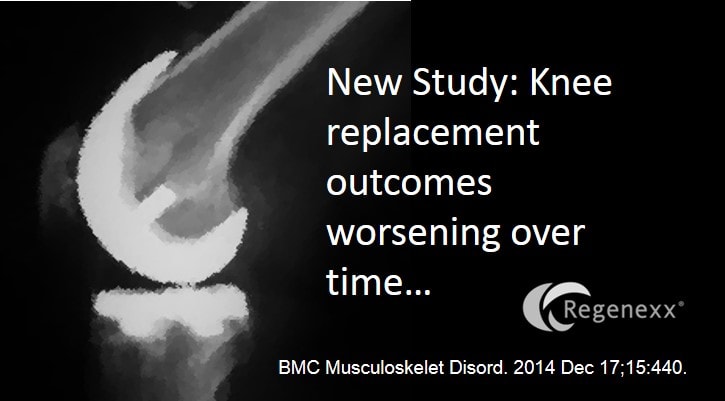Knee Replacement Concerns: Outcomes Worsening Over Time!
I’ve blogged before about my knee replacement concerns. The results aren’t nearly as good as people believe them to be. Now a new study shows that those results may be worsening over time.
Knee replacement has become standard of care for severe arthritis, not necessarily because it’s a perfect solution, but more because it’s all we had to offer. What’s amazing is the gulf between people’s perception of knee replacement outcomes and the reality. For example, a recent study showed that while most patients believe their pain will go completely away, the reality is that 54% of patients still had pain. How much pain? Another study showed that the most common pain after knee replacement was a 5/10!
Now a new study shows that these already less than stellar outcomes may be actually getting worse through the years. The researchers used the Mayo clinic Total Joint Registry that tracked two year post knee replacement function limitations (i.e. how much a knee replacement patient was able to do or not do). More than 7 thousand patients had knee replacement surgeries from 1993-2005. The patients were older (68 years) and overweight on average. There were significantly more patients with moderate to severe activity restrictions in 2002-5 compared to 1992-5! In fact, the amount of patients severely disabled after knee replacement increased by 79%! In one of their analyses, almost 1/4 of the patients in 2002-5 who got a knee replacement had moderate to severe pain two years later!
The upshot? Based on this Mayo Clinic knee replacement registry, outcomes are getting worse for knee replacement. Why? I can make a few guesses. First, the researchers found that there was a doubling of risk of moderate to severe pain if the patient was heavier. This makes sense, as the United States has put on the pounds during that time. I personally think the X factor that the researchers couldn’t measure was that surgeons are much more aggressive about recommending knee replacement today than they were in the 90s. In the meantime, this study continues to show what others have shown-knee replacement isn’t all that it’s cracked up to be!

NOTE: This blog post provides general information to help the reader better understand regenerative medicine, musculoskeletal health, and related subjects. All content provided in this blog, website, or any linked materials, including text, graphics, images, patient profiles, outcomes, and information, are not intended and should not be considered or used as a substitute for medical advice, diagnosis, or treatment. Please always consult with a professional and certified healthcare provider to discuss if a treatment is right for you.

